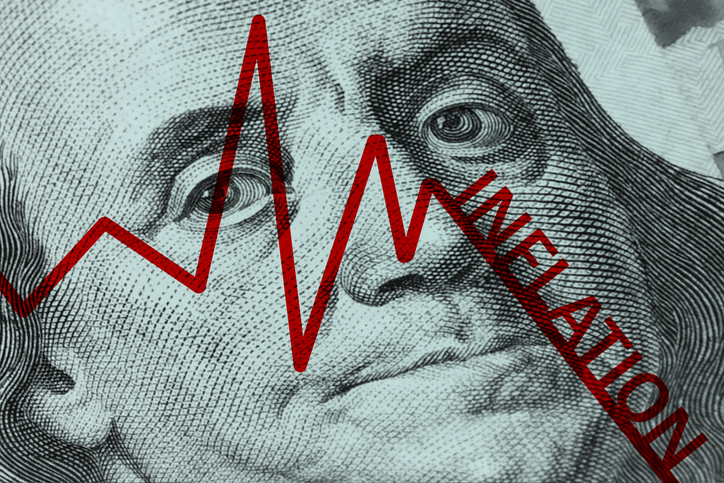Everybody’s asking the same question this year. Check out some recent headlines:
- Why aren’t Americans happier about the economy? – The Guardian, July 10
- Why the economy feels so bad when experts say it’s so good – Fortune magazine, Aug. 3
- The U.S. economy is humming. So why are Americans so grumpy about it? – National Public Radio, Oct. 26
- The Economy Is Great. Why Are Americans in Such a Rotten Mood? – The Wall Street Journal, Nov. 1
By the numbers, things are very good. The economy is not only growing, but picked up steam in the third quarter. Unemployment is low. Employers are scrambling to find enough workers to fill all the jobs. Consumers say things cost too much, but they’re out there buying like it doesn’t bother them. Inflation has dropped significantly, and since about July, it’s been outpaced by rising wages.
So what’s the problem? We decided to ask an expert right here at home – Joseph Von Nessen, a research economist in the Division of Research at the Darla Moore School of Business. He specializes in regional economics, economic forecasting and housing economics.
Bottom line – if you oversimplify his response – he said it’s about inflation. No surprise, eh? That’s what the average consumer says when asked. But of course, that’s not the whole story, and doesn’t fully make sense. After all, inflation is way down now – inflation was at a peak of 9.1 percent in June of 2022, and now it’s about 3.1 percent. The various measures to combat it have evidently been working. So why the glum faces?
But that’s not the whole story. As Von Nessen explained, “A decrease in inflation is not the same as a decrease in prices.” And that’s what people want – for everything from gasoline to eggs to drop down to the more comfortable prices we enjoyed three or four years ago, or even earlier.
That’s asking a bit much, of course. An overall drop in prices – that is, an inflation rate lower than zero – is called deflation, and that’s a very bad thing. It’s the sign of an economy that is dead or dying. If you’re old enough, your grandparents experienced deflation. Historians call that period The Great Depression.
What you want is a growing economy, and inflation comes with that. The key is to keep the rate low enough that the inflation itself isn’t a problem. One way to measure that is to ask, are wages growing faster than prices? Since July, they have been – wages at a rate of about 4 percent, and inflation at about 3.
That’s not quite perfect, Von Nessen notes, although we’re moving in that direction. Since 2012, the government has set 2.0 percent as the sweet spot, consistent with a healthy, growing economy.
“Much of the economic pessimism is a result of the high inflation we’ve seen over the last few years,” said Von Nessen. And that’s still affecting the way people feel about inflation, in three ways:
- The simple, lingering pessimism arising from having lost purchasing power over a period of three years – inflation rose cumulatively by 18 percent, and wages only 15 percent.
- Job insecurity resulting from a slowdown in some sectors during 2022 and 2023, following the rise in interest rates. Inflation is one thing, but it feels even worse when you’re also worried about losing your job.
- A loss of purchasing power that hadn’t been seen since the early 1990s.
Retirees, who remember worse inflation when they were young in the late 1970s and early ’80s, may not fully understand that third point. But “If you take as a given that an average career is about 30 years,” said Von Nessen, that means most current workers had never seen things as bad as they recently were.
“Over the last several years, we’ve seen an overheated economy that emerged after COVID,” he said. We had $6 trillion dollars in stimulus spending. Savings rates went up, and so did spending – at least on home improvement and durable goods.
Then came what Von Nessen calls the Great Readjustment, as we were “coming off the caffeine high” of all that cash pumped into the economy by the government.
Since July, things have looked “very promising,” he said, but “we’re still seeing the effects.”



Comments are closed.